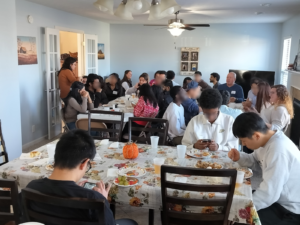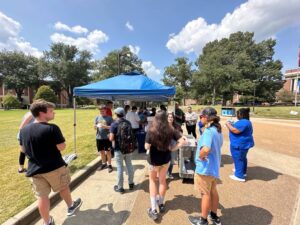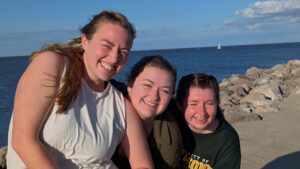On June 26, 1963, President John F. Kennedy gave one of the most significant speeches of his presidency. Speaking to citizens in West Berlin, West Germany, 22 months after the Soviet-supported East Germany erected the Berlin Wall to prevent mass emigration to the West, Kennedy wanted to show that he, and by implication the United States, was standing with them in the strongest possible way. When he made the now-famous statement, “Ich bin ein Berliner!” (“I am a Berliner!”), he was declaring that all freedom-loving people stood with the people of Berlin, and in fact, were like them in a shared desire for freedom from oppression. 
I had the privilege recently to meet with a new collegiate minister coming to New York City to expand the work in that area. I am not a collegiate minister in New York myself, but as he was coming from the South and into an “Emerging Region” (ER), our designation for areas outside the Bible Belt, there were a number of principles I wanted to share with him appropriate for the ER that would be helpful as he began his work. These included:
- Becoming a “spiritual detective,” i.e., learning to see where God was at work
- Seeking out those God has already placed there from other tribes and ministries to have as cultural guides and missional partners for the work
- Operating out of the principle of “leverage,” where in a setting with limited resources you strategically deploy the resources you have in a way as to have a greater output than what was invested
- Learning from the example of Paul in Athens (Acts 17), in which he finds himself in a city radically opposed to the things of God but seeks out points of commonality as a starting point for sharing the gospel
- Having a mindset that what is key is not to develop a strategy to reach the city, as if you can put that on paper for a region of 18 million people, but rather to facilitate a movement of God that expands beyond the limits of his tribe’s influence to have maximum impact for the Kingdom
In other words, what I said to him is that in approaching collegiate ministry in an ER context, you have to first approach the work as a missionary, and secondly as a collegiate minister. We have learned in our ER settings that we can learn and apply much from our brothers and sisters serving overseas in how they engage non-Christian and even hostile cultures with a gospel witness.
This is all well and good. But as I was thinking about it, I think what I shared with my friend is becoming more and more appropriate for all areas of our nation, even in the Bible Belt. As we have seen survey after survey confirm the rise of the “nones,” especially among those under 30, we can expect this to be a reality not only for those in ER areas, but also for those in the churched heartland.
Just as was true for Leslie Newbigin, the missionary to India of the last century who returned to his native England after 30 years to find that the missionary strategies he used in India now had to be used in his homeland, I think going forward all of us are going to have to learn to:
- Do more with less
- Expect more and more often to encounter people who are totally untouched by church culture and even a cursory knowledge of the Bible
- Rely less on structures and more on relationships and networks
- Learn to be, as Richard Foster has taught us, a “portable sanctuary”
- Expect to be seen as outsiders to the dominant culture rather than insiders within the culture and find the advantages in that position
- Find points of entry less by our titles and more by our character
- Learn to operate across cultural boundaries and tribes to propagate the gospel
The good news? I think most of those reading this post are already aware of this and are hard at work making the changes necessary, both in their personal lives and in their ministries to students.
So in the spirit of President Kennedy, I think a new mantra for our national collegiate ministry could be, “Ich bin ein ER-er!”
Our guest blogger is Robert Turner, collegiate state director for PA/SJ Convention and LifeWay Collegiate Contract Worker for Emerging Regions.





